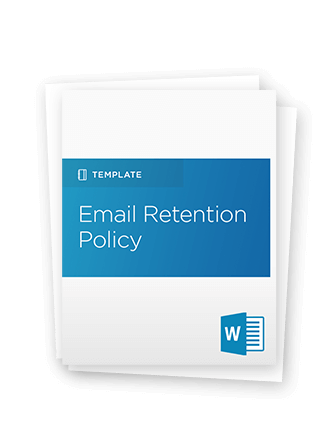Finding the Best Email Hosting Service for Your Small Business

Despite the growing popularity of instant messaging applications and other email alternatives such as Salesforce Chatter and Slack, email remains the preferred mode of communication. Cloud hosting has not only kept email relevant, it’s made it easier than ever to find business email services that fit both your hosting needs and your budget.
In this blog post, we’ll dig into the differences between hosted business email and on-premises email, as well as the best options for small businesses.
What Is a Hosted Business Email Service?
A hosted email service is a service that runs on email servers. When it comes to email hosting, businesses have their pick of self-hosting, shared hosting or retaining the services of a third-party provider.
Self-hosting is the act of storing one’s emails on your own personal server.
Self-hosting enables businesses to maintain greater control over their platforms but is difficult to set up and to maintain. In order to host its emails on-premises, an organization would require a few basic components, including a mail transfer agent, a mail delivery agent and an IMAP and/or POP3 server. Self-hosting is also expensive. In addition to requiring a major upfront investment, self-hosted servers require systems administrators to perform routine maintenance. As a company expands, it will also have to purchase additional servers in order to scale up and accommodate its growing email hosting needs. Self-hosting is more popular among enterprises, which have the resources to run and maintain multiple email servers.
Shared hosting refers to the act of bundling web and email hosting.
This is incredibly convenient for small to medium-sized businesses (SMBs) because the hosting provider is responsible for all server maintenance, administration, management and support. Shared hosting is also affordable: Many providers include the cost of email hosting in their web hosting subscription fee.
Third-party hosting is similar to shared hosting, with the exception that it doesn’t include web hosting. With third-party hosting, email hosting providers essentially rent out their servers to businesses.
This type of business email service is popular for its affordability. There are multiple free, third-party email hosting services for custom domains on the market, such as Zoho Mail and Yandex — however, these free hosting services are usually ad-heavy and lack the extensive functionality of a paid service. Paid hosting services often come with robust feature sets, including IMAP/POP3, spam prevention, anti-virus software, unlimited aliases and forwarders, online storage, email backup and more. Email hosting providers also manage their own servers, including maintenance and administration, so their clients can focus on their core business.
The biggest risk with both shared hosting and third-party hosting are potential security breaches. Since businesses who utilize either of these services don’t have direct control or supervision over their email servers, they’re more prone to hacking attacks.
Evaluating Email Hosting Providers
There are several key factors to consider when comparing email hosting providers and services, starting with security. Security breaches are an unfortunate fact of life, something shared hosting providers, third-party providers and those who self-host alike must contend with. Should a hacker successfully gain access to a business’ emails, they can also access the potentially sensitive data within. This risk has made some businesses understandably skeptical of shared hosting — however, SMBs can take solace in knowing that many business email services come with built-in security capabilities, such as malware scanning and encryption. These features also provide powerful privacy protection, for additional peace of mind. Small business owners would also do well to thoroughly investigate how potential email hosting partners intend to use their data and who will have access to it.
Phishing attacks are another major security concern to account for when evaluating small business email hosting services. These attacks occur any time a hacker poses as a reputable company or trusted individual in an attempt to fraudulently obtain sensitive personal data, such as passwords or financial information. There are a few basic measures small business owners can take to prevent a phishing attack, such as making employees aware of such attacks and encouraging them to never share passwords. Any SMB considering shared hosting should also invest in a service with built-in anti-phishing tools, anti-virus software and a protective firewall.
Other key features and qualities businesses should look for in an email hosting provider include MAP/POP3, spam filters, custom domains, mailbox storage and 24/7 support.
The Best Email Hosting Services for Small Businesses
Based on extensive research and customer reviews, we’ve assembled a list of eight of the top email hosting providers for small businesses, presented in no particular order:
| Rackspace Email | Microsoft Exchange Online | Zoho Mail | ProtonMail | Google Workplace (formally G Suite) | Fasthosts | Intermedia Exchange Email | IceWarp |
|
|
|
|
|
|
|
|
| $2.99 – $6.99 per user/month | $4.00 per user/month | $1 – $6 per user/month (billed annually) | Up to $34.16 per month.Free Plans available | $5 – $25 per user/month | $1.32 per month. Exchange Email upgrade pricing available upon request | $7.49 – $16.99 per user/month | $2.50 – $7.00 per user/month. Server-hosted subscription and license plans available upon request |
We hope you find this guide to choosing the right small business email hosting service helpful. Once you’ve found the right service and provider for your business, the next step is to look into email archiving — that’s where the experts at Intradyn come in. Our email archiving and eDiscovery software can help you protect sensitive data, maintain regulatory compliance and respond to litigation requests without having to think twice. Contact us today to find out how to get started.

